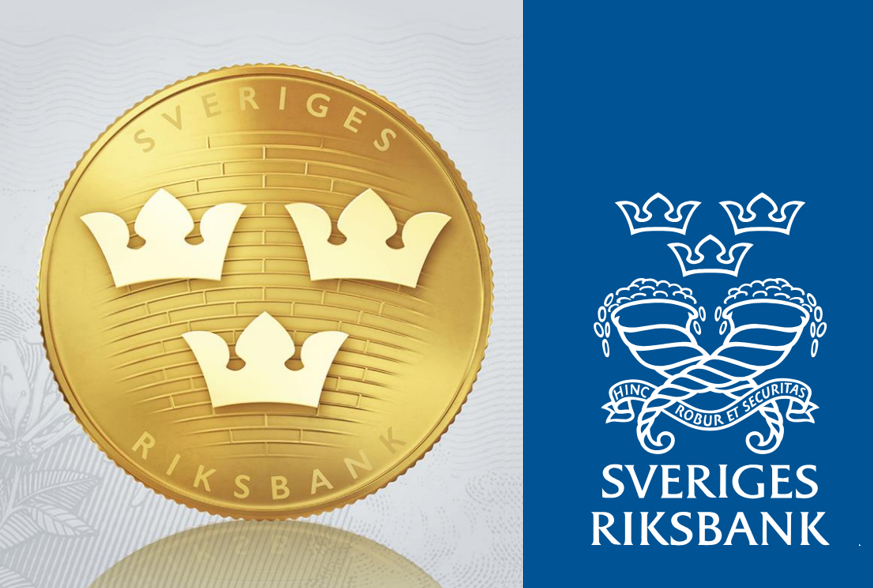
In a world where digital transactions are rapidly becoming the norm, Sweden has been at the forefront of exploring a cashless future. The ongoing development of the e-krona, a central bank digital currency (CBDC), by Sweden’s central bank – the Riksbank – is an extension of this movement.
Across several years of development, the e-krona project has been through multiple research and pilot stages aiming to address the challenges associated with launching a CBDC. Here, we'll look into the evolution of the e-krona project, from inception to its present-day state.
Initial research into a potential e-krona
Notably, Sweden is one of the nations with the lowest levels of cash usage worldwide. The Riksbank's most recent statistics show that between 2010 and 2020 the percentage of people paying in cash decreased from around 40% to less than 10%, mainly consisting of smaller purchases and those by older generations.
In 2017, the Riksbank began work on the e-krona project with the intention of thoroughly evaluating the need to introduce a digital currency during the initial research stages. The project team first sought to exchange useful insights, investigate technical avenues, and consider the legal ramifications of issuing a digital currency, through engagement with national and international stakeholders.
In its report concluding this initial stage the Riksbank highlighted ongoing technological developments, the continuing digitalization of payments, and that the state's role in supplying money was at a critical juncture. It suggested that the introduction of a digital krona might guarantee that the public continues to have access to a state-guaranteed form of payment.
Aiming to assess the practical functionality of an e-krona, the bank launched the e-krona pilot project, in collaboration with the IT services firm Accenture, in 2020. The public report following this stage offered a summary of the tested technical solution and legal analyses.
Further concerns over vulnerable cash infrastructure
In 2021, the Riksbank again expressed concern about the increasingly brittle infrastructure supporting cash transactions in Sweden. The bank issued a statement further suggesting that it had become difficult to maintain the essential infrastructure required for households, banks and retailers to access cash.
However, the bank also acknowledged that certain groups still relied on cash to manage their transactions effectively, while the availability of cash would continue to serve as a crucial backup in situations where critical infrastructure was disrupted.
E-krona project enters second pilot phase
The project entered its second pilot phase in 2021, with the Riksbank reporting a year later that it would be possible to integrate the e-krona into existing banking and payment systems.
It found that customers could seamlessly convert funds between their bank accounts and e-krona, and that transactions could be completed even in offline scenarios.
The project also delved deeper into the legal considerations surrounding the CBDC, specifically its classification as an asset, drawing the conclusion that the e-krona could be regarded as an electronic form of cash.
Findings from the third e-krona pilot
In April 2023, the e-krona team released a report marking the conclusion of its third pilot phase. This stage focused on exploring the practical implementation of an e-krona, examining its interaction with various stakeholders in the payment market, conditional payments, and the potential for simplified cross-border transactions.
According to the bank, collaboration with payment service providers had been at the heart of the e-krona pilot, ensuring accessibility for the public in the event of the e-krona’s issuance.
The bank added that it had taken into account various levels of governance when imagining a future e-krona cooperation model. These ranged from allowing considerable freedom in service and interface design to imposing a predefined and uniform interface and service range.
The bank stated that while a low level of governance may foster competition and innovation, it could also lead to fragmented implementations that hinder public recognition. Finding the right balance between the overall e-krona objectives and the needs of the public and market has emerged as a crucial consideration, the bank said, adding that a high degree of governance would guarantee a uniform supply and standardized services, but could also stifle competition and innovation.
e-krona. Next steps
The central bank intends to focus on a number of crucial areas as the e-krona project continues to move forward. Firstly, a thorough analysis of the potential economic impacts that an e-krona might have on the Swedish economy as a whole will be completed. This will include an examination of the effects an e-krona could potentially have on the Riksbank's current mandate, and the necessary legal adjustments needed for the bank to assume the role of an e-krona issuer.
The technical solution will also undergo further testing, with an emphasis on offline payments and sustainability, to ensure the currency's resilience and usability in a variety of situations.
Additionally, the bank will carry out exhaustive studies targeting end-users and traders to achieve a complete understanding of the user experience and its effects on participants in the financial market.
Sweden's potential CBDC certainly appears to be at an advanced stage, and we will Observe further developments closely.

